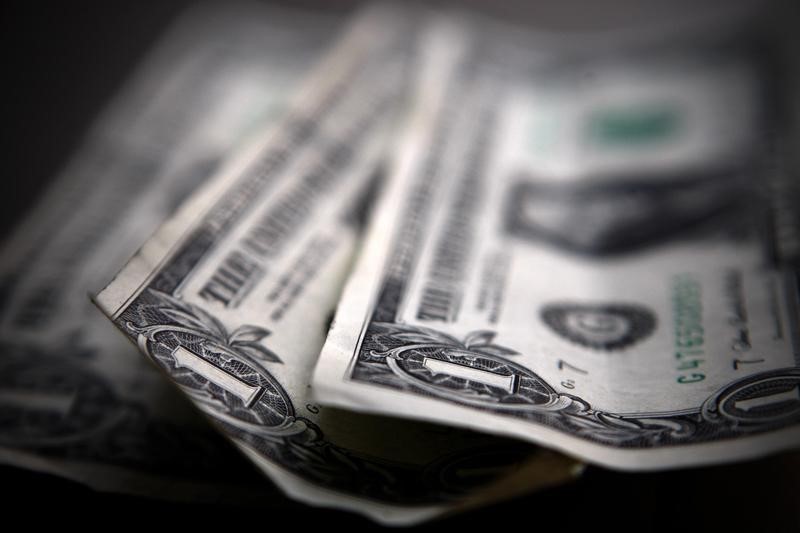* New round of Sino-U.S. trade talks to be held late August
* News gives battered emerging currencies breathing space
* Currencies such as yuan, peso and rand bounce back
* Yen sags broadly as risk aversion eases (Updates throughout)
By Shinichi Saoshiro
TOKYO, Aug 16 (Reuters) - The dollar was nudged away from a 13-month peak on Thursday as risk aversion eased and emerging market currencies bounced back on news that a Chinese delegation will travel to the United States late in August to hold trade talks.
China's Ministry of Commerce said on Thursday that it had received an invitation from the United States for talks to be held with U.S. Under Secretary of Treasury for International Affairs David Malpass. news that the world's two biggest economic powers, currently locked in a trade war, were showing a willingness to negotiate boosted investor sentiment after a worrying week.
The dollar index against a basket of six major currencies .DXY was 0.17 percent lower at 96.536. It pulled back from a 13-month high of 96.984 scaled the previous day when currency turmoil in Turkey and concerns about China's economic health supported safe-haven assets and weighed on emerging market currencies.
China's onshore yuan, which has been rough barometer of risk sentiment, was 0.35 percent firmer at 6.911 to the dollar CNY=CFXS and off a 15-month low of 6.934 set on Wednesday.
Other emerging market currencies also bounced back. The South African rand ZAR=D3 gained 0.6 percent to 14.48 per dollar after sliding more than 2 percent overnight while the Mexican peso MXN=D3 and Thai baht THB= also rose.
The MSCI emerging currency index .MIEM00000CUS nudged up after hitting its lowest since May 2017 on Wednesday.
"Trade war fears had morphed into an opportunity for speculators, who had been selling the yuan and other currencies against the dollar. The news that pointed to a possible easing of U.S.-China trade tensions appears to have curbed such activity," said Mitsuo Imaizumi, chief FX strategist at Daiwa Securities.
"But there is no guarantee that the trade discussions will end successfully. As such, the trade news may have stopped the speculators' selling but perhaps only for the time being."
The greenback had drawn strength after a tough week for emerging market currencies, initially led by the rout in the Turkish lira. The currency plunged to an all-time low at the start of the week as tensions between Ankara and Washington flared and worries over President Tayyip Erdogan's economic policies increased.
The lira has since recovered to 5.9725 per dollar TRYTOM=D3 after slumping to a record low of 7.24 on Monday.
Junichi Ishikawa, senior FX strategist at IG Securities, said that market focus was moving beyond the lira to wider political risks.
"Rather than Turkey's economy, its political situation is now seen as a much larger risk. Turkey's stand-off with the United States could nudge it closer to countries like Russia, China and Iran, increasing geopolitical risks associated with the region," Ishikawa said.
As the dollar sagged, the euro rose 0.25 percent to $1.1373 EUR= after plumbing a near 14-month trough of $1.1301 on Wednesday. Concerns that European banks would be hit by financial turmoil in Turkey had weighed on the single currency.
The pound edged up 0.15 percent to $1.2715 GBP=D3 , crawling away from a 13-month low of $1.2662 brushed on Wednesday when the dollar's broad strength offset an unexpected drop in Britain's unemployment rate.
The yen, another perceived safe haven which had been on a bullish footing along with the dollar, retreated.
The dollar was 0.05 percent higher at 110.82 yen JPY= bouncing back from the day's low of 110.46.
The euro gained 0.35 percent to 126.07 yen EURJPY= and the Australian dollar added 0.3 percent to 80.40 yen AUDJPY= .
The Aussie, seen as a liquid proxy for China-related trades, climbed 0.25 percent to $0.7256 AUD=D4 after falling to $0.7202 on Wednesday, its weakest since January 2017.
